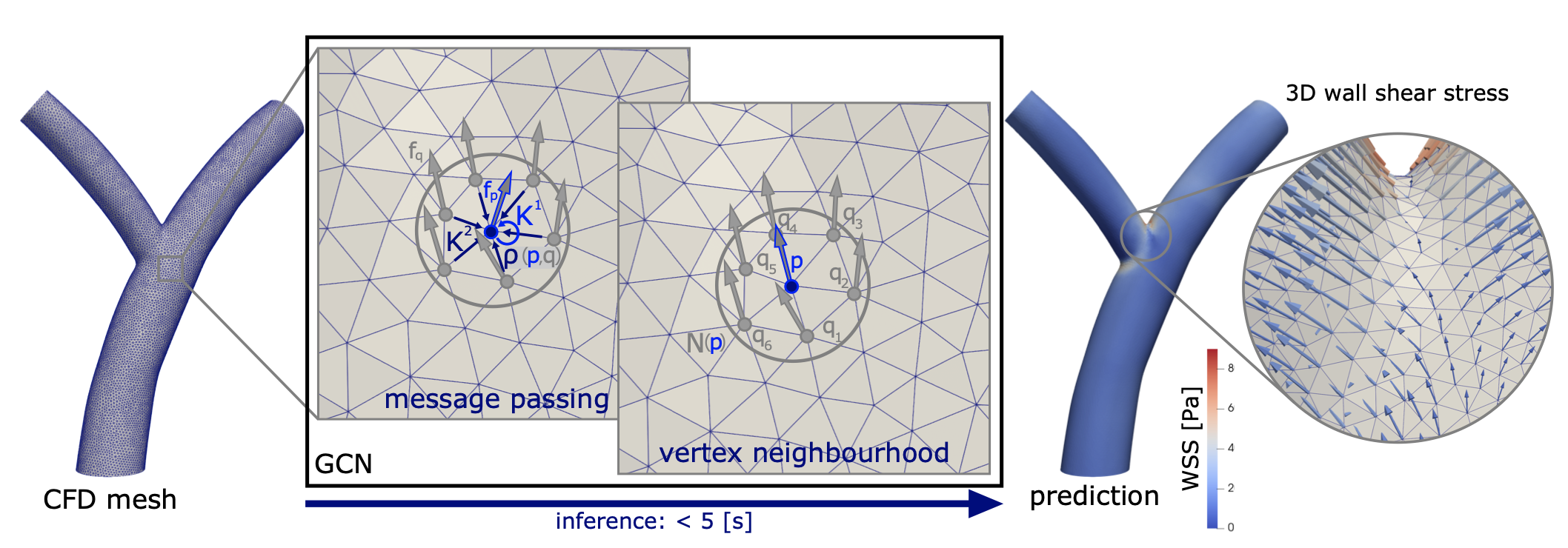Mesh convolutional neural networks for wall shear stress estimation in 3D artery models
 CFD estimation with MeshCNNs
CFD estimation with MeshCNNsAbstract
Computational fluid dynamics (CFD) is a valuable tool for personalised, non-invasive evaluation of hemodynamics in arteries, but its complexity and time-consuming nature prohibit large-scale use in practice. Recently, the use of deep learning for rapid estimation of CFD parameters like wall shear stress (WSS) on surface meshes has been investigated. However, existing approaches typically depend on a hand-crafted re-parametrisation of the surface mesh to match convolutional neural network architectures. In this work, we propose to instead use mesh convolutional neural networks that directly operate on the same finite-element surface mesh as used in CFD. We train and evaluate our method on two datasets of synthetic coronary artery models with and without bifurcation, using a ground truth obtained from CFD simulation. We show that our flexible deep learning model can accurately predict 3D WSS vectors on this surface mesh. Our method processes new meshes in less than 5 [s], consistently achieves a normalised mean absolute error of ≤ 1.6 [%], and peaks at 90.5 [%] median approximation accuracy over the held-out test set, comparing favorably to previously published work. This shows the feasibility of CFD surrogate modelling using mesh convolutional neural networks for hemodynamic parameter estimation in artery models.